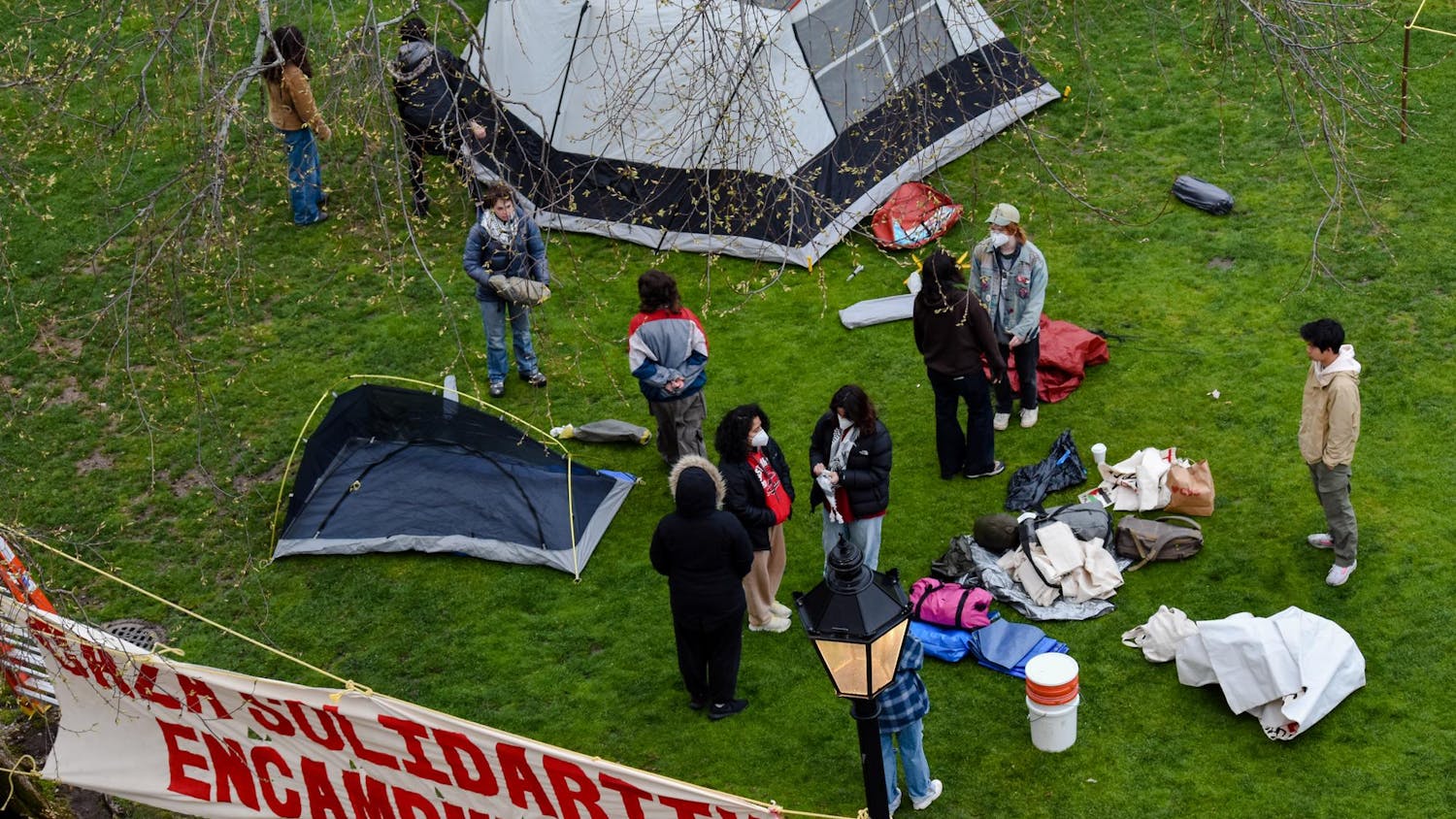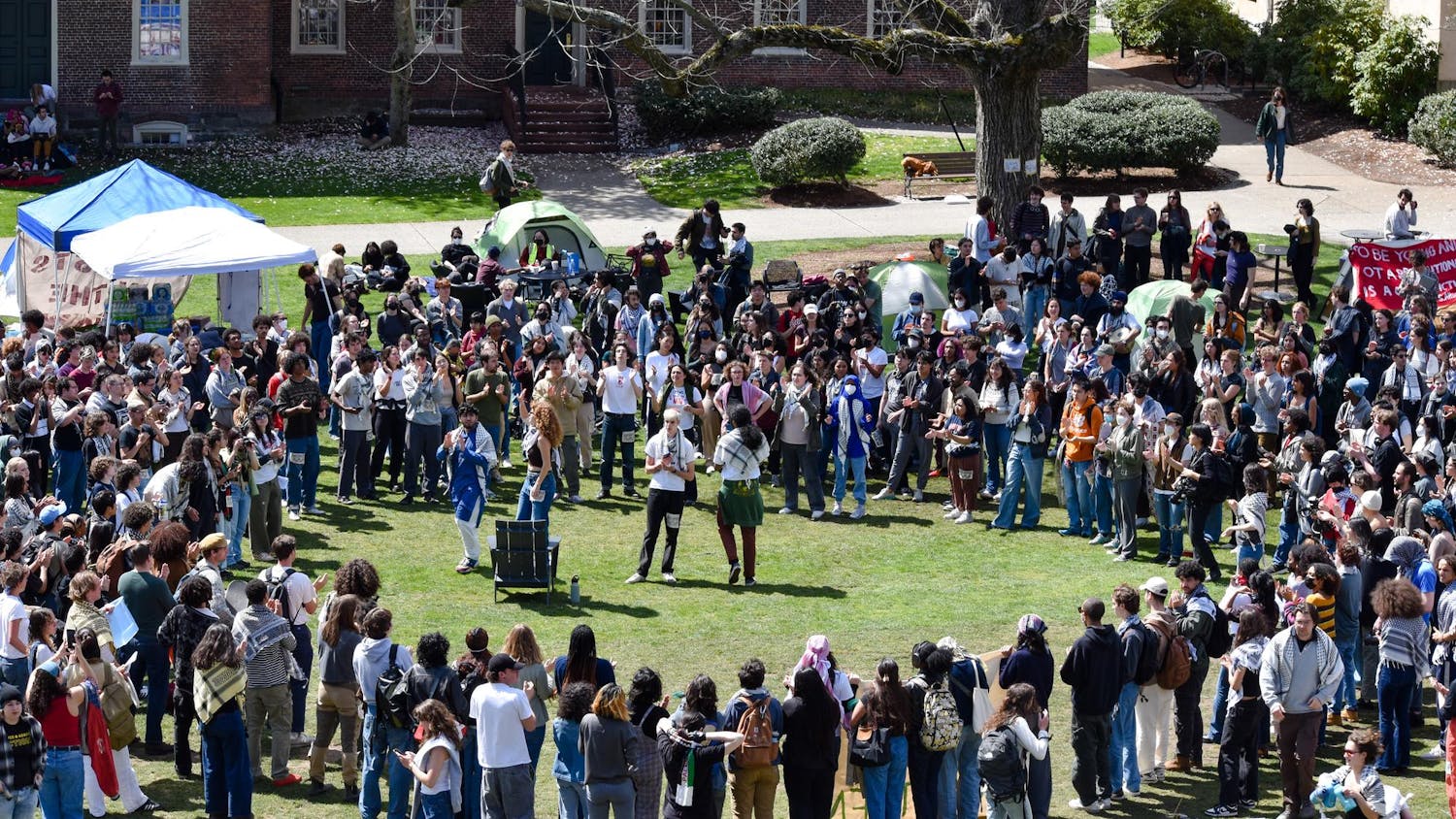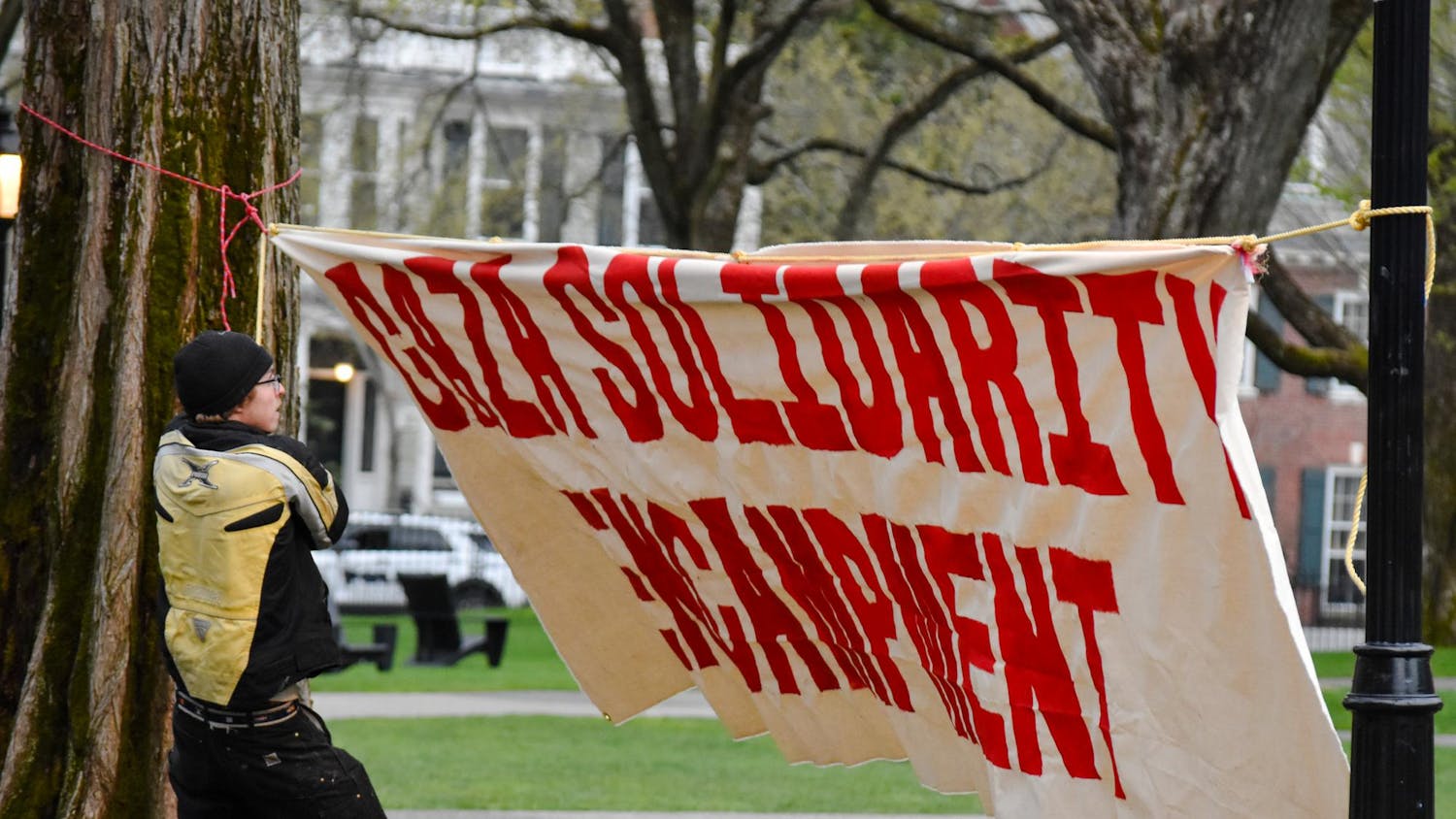The Herald sat down with the candidates for the Undergraduate Council of Students president and vice-president and the Undergraduate Finance Board chair and vice-chair. Voting begins Tuesday at 12 p.m. and will continue through Thursday at 12 p.m. The winners will be announced at 11:59 p.m. Thursday on the steps of Faunce House.
The candidates for UCS president are Robert Bentlyewski '13, David Rattner '13 and Anthony White '13.
Bentlyewski
"I would like it so the average student is interested in what UCS is doing and also has confidence that UCS understands what they want," Bentlyewski said.
Bentlyewski said he wants to bridge the gap he perceives between the council and its constituency by bringing an average student's perspective to the table.
"I do my homework. I watch Conan. I go to sleep. I feel like I'm pretty average," he said. "What I want to do is give (the students) a reason to take interest again" in the council's activities. Bentlyewski hopes to accomplish this task by restructuring the council to include 12 equal members from each class.
Born in Dover, N.J., Bentlyewski said he was not prepared when he came to Brown to be an American literature concentrator. "I didn't know how to use a semicolon or hyphenate correctly. I started off by just writing pretty awful, immature papers," he said. But by working persistently, he said he was able to improve his writing and become a successful student. Bentlyewski has since been awarded an Annual Fund Scholarship and was asked to speak at the Annual Fund's leadership conference in New York. His determination also allowed him to become starting player on the rugby team within a year of joining, despite weighing much less than the average rugby player and having no prior experience, he said.
He said such perseverance will allow him to learn the ropes quickly if elected to UCS president, despite never having been a member of the council.
"When I choose that I want to get something done, I'll try and fail at a million different things until it gets done," he said.
Rattner
Rattner said he wants to better incorporate "the opinions, the interests and the beliefs of Brown students" into UCS.
To do so, he said he would hold receptions during the semester for leaders of other student groups who would convey the desires and needs of their group's membership to the council. He also hopes to appoint outreach officers for each class who would be responsible for researching and reporting on the opinions of the student body.
"I see our role as a liaison between the administration and the student body at-large," Rattner, a New York City native, said. "Where we can do better is on the student side of that."
Rattner said he is collaborative and good at listening to others' opinions. When addressing such issues as improving housing and dining next year, he said he would ensure that "students have a voice in what those changes are."
As vice-president for the council this past year, Rattner has worked to pass a statement decrying the state of undergraduate housing and another statement discouraging the administration from cutting four varsity athletics programs. Rattner also helped secure free media services for all student groups.
The political science and economics double concentrator said his experience with the council and relationship with key administrators will help him be a more efficient president if elected.
"I'll be able to hit the ground running and to continue the conversations that I've already been having rather than to start those conversations anew," he said.
White
White said he never expected to run for the position of UCS president, but he realized that in order to advocate for major issues such as better financial aid, he needed a leadership position with access to key administrators, he said.
White, a political science and history concentrator, currently serves as chief of staff to the UCS president and is the communications chair of the Brown Democrats.
As a member of the Brown Democrats, White organized an alumni dinner that raised over $1,000 for the student group and has worked to develop the group's image within the Brown community.
If elected, White said he hopes to increase the council's presence on campus through a liaison program, in which council members involved in other activities will voice the opinions of these groups to UCS. White also plans to encourage more people to come to the council's community time.
"UCS, in its construction, is supposed to be a conduit between the administration and students," he said. "Right now, it often feels like an isolated decision-making body."
As a member of the council, White helped pass a resolution supporting Opportunity R.I. and helped develop a more efficient categorization program for student groups. Under the new system, the student activities committee only reviews categorization and recategorization requests once each semester.
He said he has also worked to help student groups find alternative sources of funding outside of UFB.
White said he is a very determined leader and is able to develop creative solutions to problems, such as having the Brown Band camp outside the provost's office in order to voice student demands.
He added that his experience working both within UCS and with other student groups has allowed him to understand how student government works while also seeing its faults. "Just being informed in this larger sense definitely, I think, makes me stand out as a candidate," he said.
The candidates for UCS vice-president are Brandon Tomasso '13 and Michael Schneider '13.
Tomasso
Tomasso said UCS should not be considered any different from other student groups. When he heard about the council's proposed constitutional amendment - which would have given the council the ability to allocate its own budget without the approval of UFB - he decided to run for the position of vice president, he said.
UCS has "no more right than anybody else to have that money," he said. "That's what bothered me so much that I said, 'You know what? I need to step up and make some changes here.'"
Tomasso, an anthropology and archaeology concentrator from Vineland, N.J., has served as Class Board president for the past three years and is also a member of the fencing team.
Being Class Board president "taught me how be more professional, how to work through the administration, to talk to people, how to make things happen on campus," he said.
Tomasso was also a member of the council for two years but was unable to serve this past year due to scheduling conflicts. As a general body member, he co-sponsored a resolution supporting Opportunity R.I., a bill that would give Rhode Island college graduates a monetary incentive to work in the state.
He said his year off from UCS has given him a fresh perspective on student government. He said he th
inks he will be able to bring the council closer to the student body if elected president because he hasn't "been ingrained and indoctrinated with the UCS train of thought."
"I haven't seen the leadership of UCS, at least in my years, really exciting the others to do things," he said. "I would be more like a guy on the floor, talking to people like crazy and telling them they can do it and encouraging them to follow their dreams."
Schneider
Schneider said the University needs to focus on financial aid, the student activities endowment and the undergraduate experience in general.
He said the council must work to be the student's voice on these issues and plans to increase student involvement in UCS through more student feedback events and consistent outreach to student leaders.
This past semester, Schneider hosted an event that allowed students to taste and give the administration feedback on the food that will be offered in Poppy's Cafe in the new athletic facility. He hopes to use similar events in the future to garner student opinions on issues facing the University.
Schneider currently serves as the chair of campus life for the council, where he said he has learned how to be a good motivator.
"I know how to make people feel comfortable," he said, a characteristic he considers crucial to the role of UCS vice-president.
The political science concentrator hails from Laguna Beach, California. In his freshman year, Schneider was a member of Brown Democrats and as a member of UCS helped pass the housing statement, which outlined student concerns with the University's housing program. The statement "was a really good example of how UCS can push the administration to do something," Schneider said.
If elected, Schneider would like to increase student voice in professor tenure decisions and increase student presence on the Undergraduate Resource Committee. He said he hopes increased student presence on the URC will help discourage the University from further raising tuition.
"I'm approaching (the position) with an understanding of what UCS needs to improve upon," he said. "I've been on e-board. I know what it takes to be UCS vice-president."
Zak Fischer '13 is running uncontested for chair of UFB.
Fischer
Fischer plans to revamp fundraising efforts for the Student Activities endowment by taking a more mathematical approach, he said.
UFB and the council have been working to raise $20 million for a student activities endowment that may eventually replace the student activities fee as the main source of funding for student groups.
Currently, to raise money "we go and complain and give (alums) ideas and say, 'This is important,'" Fischer said.
Fischer said he hopes to improve fundraising efforts by organizing the data about student group budgets in order to demonstrate to possible donors the gap between available and needed funding for student activities.
Fischer, a Chicago native, has been a member of the finance board for the past two years, where he has helped to implement the use of surveys to gather student feedback about the budgeting process for student groups. These surveys have prompted Fischer's decision to improve UFB's website if elected to chair. Fischer plans to implement a reserve tracker to allow finance board members to see the available funds left for student groups each year.
The applied mathematics and economics concentrator has recently become a licensed actuary, an accomplishment that required passing seven tests and that has taken two and a half years to complete. Actuaries are "financial risk experts" who deal with probability, he said. The knowledge of financial math and probability he has gained from studying for these exams will allow him to be a stronger UFB chair if elected, he said.




